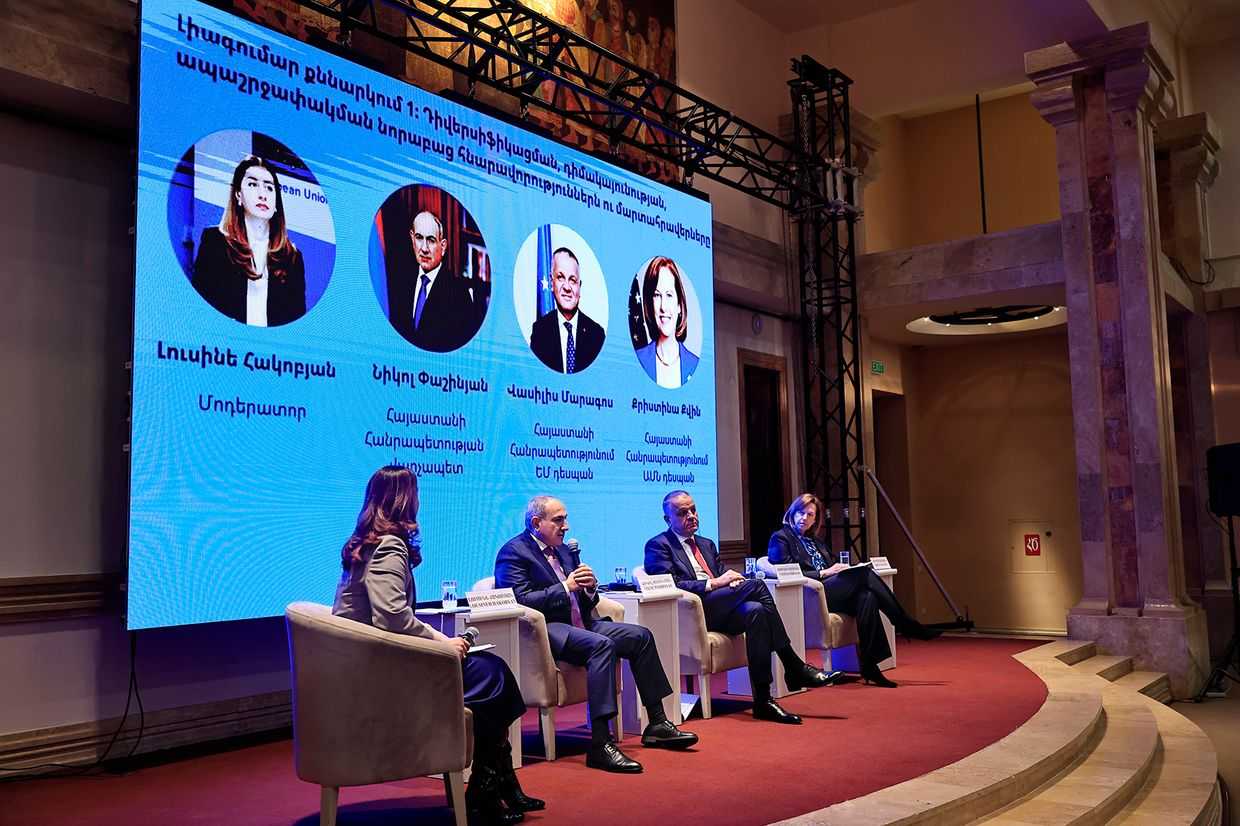
The EU’s Ambassador to Georgia has praised amendments to the country’s broadcasting law that leading civil society figures have warned will be used to stifle freedom of the press.
On Wednesday, Ambassador Paweł Herczyński stated that the amendments — which banned the use of obscenities, incitement of violence, and hate speech — as positive developments towards Georgia’s EU integration.
‘[A] lot has been done. In my view, more could have been done. There are still two weeks’, said Herczyński. He was referring to the EU Commission’s expected decision on 8 November on whether to recommend Georgia receive EU candidate status.
Georgia’s opposition criticised the ambassador for praising the amendments, which critics argued would allow the government to further crack down on media freedom in the country.
[Read on OC Media: Georgian Dream rushes through controversial amendments outlawing ‘obscenity’]
The amendments would give the Georgian National Communications Commission (GNCC) the power to fine media outlets for inciting violence or intolerance based on disability, gender identity, sexual orientation, sex, ethnicity, race, faith, or financial status.
It also prescribed fines for the broadcasting of ‘obscenities’, defined as ‘an action which is in conflict with ethical norms established in society and which has no social and political, cultural, educational or scientific value’.
The GNCC has in recent years been accused of targeting media groups for their criticism of the government, accusations the agency has firmly rejected.
Last week, Khatia Ghoghoberidze, chair of the Council of the Charter of Journalistic Ethics, told OC Media that the Charter saw ‘a very big danger’ in the amendments, ‘especially ahead of the 2024 parliamentary elections’.
‘Obviously, the Ethics Charter does not support hate speech, it’s just that the Charter believes that this is a matter of self-regulation, not regulation by the government, that’s the difference. [With these amandents] anything can be labelled as hate speech’, she said.
Asked about the EU Ambassador’s praise for the law, the EU Delegation to Georgia told OC Media that the amendments were in line with EU Directives which ‘Georgia needs to align with’.
‘[E]specially now that it is on the enlargement path — it [Georgia] needs to align with certain provisions and principles’, they said.
The delegation said they had heard the concerns from civil society organisations and activists about the independence of the GNCC, but that the government had assured the EU Commission that it was committed to continuing to work on the GNCC’s independence.
They also noted that regulating ‘obscenity’ was not a requirement of the relevant EU directive. ‘On this issue, it is definitely important to ensure that dialogue is held with the stakeholders on its application’, they said.
On Friday, Davit Songhulashvili, a member of Georgian Dream, and an author of the controversial amendments, said that the ruling party was willing to commit further changes to the law upon the European Commission’s request.
Herczyński puzzles the opposition
A number of leading opposition figures have been critical of Herczyński’s assessment of the amendments.
Paata Manjgaladze, an MP from Strategy Agmashenebeli, cast doubt on the ambassador’s approval of the changes, citing Herczyński’s previous criticism of the appointment of pro-government figures to the High Council of Justice.
‘I think it’s a joke because no one can like the broadcasting law, the tents law, nor the fact that a Georgian Dream activist was elected to the Council of Justice’, said Manjgaladze.
Girchi MP Aleksandre Rakviashvili said the ambassador’s statements were ‘open to interpretation’.
‘I’m going to communicate with European diplomats because I don’t understand what it means’, said Rakviashvili. ‘I place freedom of speech above any diplomat or any other government, of course, I’m interested in what the ambassador says, but I’m not going to change my position and say: “Okay, let’s limit freedom of speech because a diplomat said so”.’
The ruling party welcomed Herczyński’s statement, with Georgian Dream chair Irakli Kobakhidze stating on Thursday that the ambassador had ‘poured cold water’ on criticism of the changes.
Parliamentary Speaker Shalva Papuashvili thanked the EU ambassador for acknowledging the ‘progress related to the work on the broadcasting law’.
He added that he hoped that President Salome Zurabishvili would not go against the ‘European Union’s directive’ and veto the amendments.
‘Hopefully, she had a conversation with the EU Ambassador on this topic and we will not see such a situation and paradox where Salome Zurabishvili vetoes the EU directive’, he said.









